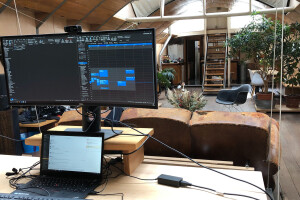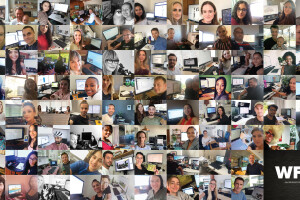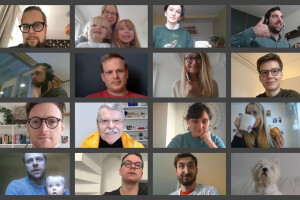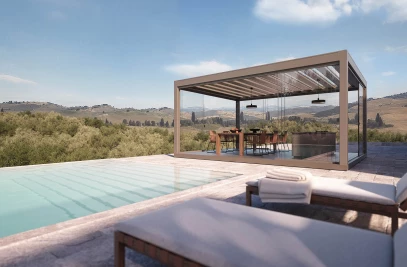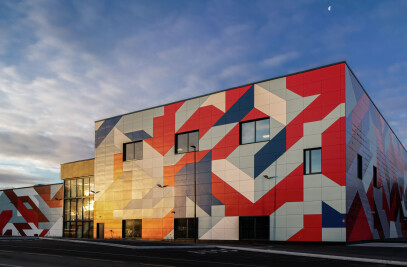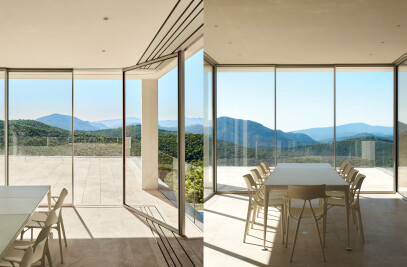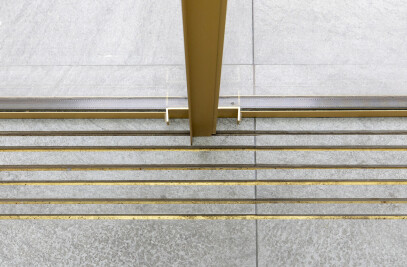As one of the measures to curb the spread of the coronavirus, the Dutch government, as many other countries are doing, has called on working people in the Netherlands to work from home as much as possible. Architects are also responding to this call. Archello is asking various offices about how they are giving shape to this. Jeroen Dirckx, a partner at KCAP Architects&Planners, offers an insight into the strategy of an internationally operating office. KCAP has offices in Rotterdam, Zürich and Shanghai and works on projects worldwide.
Having employees work from home is already difficult to organise for an office that is only active in the Netherlands. As an internationally operating architectural firm, how did you do that? Did you only work from home in the Netherlands or in other countries as well?
"Because of our work in China, we have closely followed the coronavirus crisis since the outbreak in Wuhan. To evaluate the impact on our projects, the situation was discussed weekly with our associate partner Ya-Hsin Chen, who works for us in Shanghai. It was also quickly decided that it would be better if she did not continue to work in Shanghai. After Chinese New Year she moved to her family in Taiwan until further notice. Also, our associate in Singapore, Anna Gasco, took the necessary safety measures at an early stage.
As the crisis worsened, we at KCAP quickly decided not to travel to high-risk areas such as China. The number of high-risk areas has gradually increased and we have now introduced a total ban on travel. Meetings within the Netherlands have also been reduced to a minimum under strict conditions.
We estimated at an early stage that the crisis would come here and prepared our organisation to work from home. Two weeks before the official policy was introduced, we had already completed the preparations. In the previous weeks, we have already asked several colleagues who had travelled or had contact with people from high-risk areas to stay in self-quarantine. Currently, almost all colleagues at our Rotterdam and Zurich branch work from home."
Can you work optimally this way? How is contact between colleagues and other parties, such as clients?
"As an internationally operating office, we have built up extensive experience in working remotely. We already had frequent interaction between our employees in Rotterdam, Zurich, Shanghai and Singapore. We are also used to working a lot and intensively from a distance with clients, local architects and consultants abroad. We have been working for years with various video conferencing, chat and file-sharing platforms. This experience is currently very useful and this way of working has been intensified over the previous period.
We have already used digital collaboration platforms such as MS Teams and Slack for both internal collaboration and collaboration with external parties. Currently, the entire office works in various project groups via MS Teams. This allows us to quickly exchange documents and information and discuss projects. The teams also meet virtually, so that colleagues can see each other and share work on the screen.
We have noticed that, based on our international experience, we can advise Dutch clients on how to make more use of remote consultation software. Of course, this situation has its limitations. Working in quarantine from home is not always pleasant. Personal contact between colleagues is missed. On the other hand, it saves a lot of travelling time and we learn how to make even better use of digital tools and how to work remotely more efficiently together. That's certainly going to help us in the future".
How long do you think you will be able to work in your current operating mode, without any real consequences? For example, are you thinking about reducing working hours?
"For us, this way of working is not optimal, but given the situation, we can keep this up for quite a while. Although we have only entered this situation recently, we have to keep monitoring and evaluating it. The biggest risk we see at the moment is with the progress of projects with clients or government tenders. If projects slow down or stagnate because of this situation, this obviously has an effect on the amount of work in the office.
At the moment this is not yet the case, but we are certainly investigating options for shorter working hours and financial assistance if we need this in the future. The fact that we work internationally is an advantage. Our projects are spread across several countries and therefore our risks are also spread, but given the global impact of the virus on the economy, we have to remain cautious."
Does the coronavirus crisis give you other insights as well?
"If we look at the positive side, we see that this situation creates a strong sense of cohesion within the office. The KCAP team deals with the situation in a very positive, creative and motivating way. We see this in a very active and lively group chat. Fun messages are being exchanged, like a cheerful ‘Good morning!’ around nine and “It is Lunch Time!” at half-past one.
There is also a strong willingness to help each other, for example with computer issues. And Prime Minister Rutte's national speech was spontaneously translated into English for non-Dutch-speaking colleagues. There really is a sense of solidarity in these difficult times.
We also notice, as already mentioned, that we now spend much less time and energy on travel. With good alternatives to physical meetings, we as an office can reduce our CO2 emissions considerably".
The original interview was done by our sister company Architectenweb and published in Dutch here.



